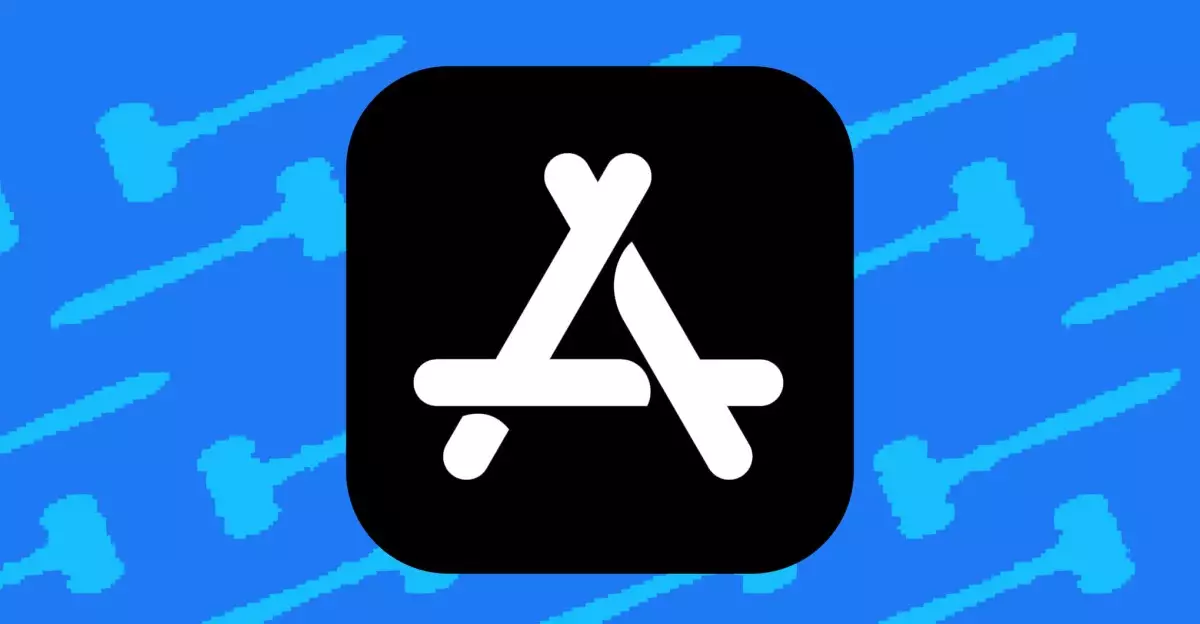The ongoing legal saga between Epic Games and Apple has entered a new phase, with the stakes higher than ever. Epic is now accusing Apple of contempt regarding a court order issued last month, which restricts Apple from rejecting app submissions based solely on their use of external payment links. In an age where technology is rapidly evolving and user freedom is paramount, this conflict represents much more than a simple dispute over a popular game; it is fundamentally about market ethics, corporate governance, and consumer rights.
Epic Games is petitioning District Judge Yvonne Gonzalez Rogers to intervene, urging that Apple be mandated to review and approve its submission of Fortnite to the US App Store, provided it meets the stipulated guidelines. This appeal reveals a critical perspective: Epic is calling for a transparent and fair evaluation process that respects the established legal framework, rather than arbitrary corporate decisions that may stifle competition.
The Legal Landscape
In a recent letter, Apple declared that it would withhold action on Fortnite’s resubmission until the Ninth Circuit rules on its request for a partial stay concerning the new injunction. This maneuver raises crucial questions about judicial independence and corporate influence. Epic argues that this delay is a retaliatory act, framing it as a direct response to the legal challenges initiated by Epic. The assertion that Apple had previously indicated it would approve Fortnite—assuming compliance with its guidelines—contradicts its current position, emphasizing the ongoing ambiguity in Apple’s practices.
The crux of this struggle lies not just in the fate of a single gaming application but in the larger implications for developers navigating Apple’s App Store ecosystem. Epic alleges that the treatment of Fortnite has turned capricious, reflecting a potentially punitive nature in Apple’s response to legal pressure. This allegation might resonate with other developers who are simultaneously grappling with similar concerns about App Store policies and their ramifications.
The Chaotic App Submission Process
The backdrop of this ordeal includes Epic’s attempts to update Fortnite, which somehow yielded more confusion than clarity. After the court’s ruling in April, Epic had expressed optimism about Fortnite’s return to the US App Store. However, ensuing events unfolded peculiarly: after an update intended for the European version, Fortnite vanished from the EU App Store—a move that Epic claims is indicative of Apple’s strategy to undermine its operations across various markets.
Apple claims to be acting with the game’s international integrity in mind, suggesting that it requested a version of Fortnite without the US storefront to prevent unfair market implications. However, Epic’s stance highlights an essential flaw in this logic; requiring multiple submissions violates Apple’s own guidelines. This scenario presents a stark illustration of how monopolistic practices can entrap developers, compelling them to navigate convoluted rules that ultimately serve one corporate behemoth’s interests.
The Judicial Sentiment and Its Implications
Judge Gonzalez Rogers, throughout this legal quarrel, has shown a degree of exasperation with Apple’s tactics, particularly in her April ruling. While she has not mandated Fortnite’s immediate return to the App Store, her criticism of Apple might provide a favorable backdrop for Epic as this case progresses. If she perceives Apple’s actions as flouting the court’s authority, it could lead to a significant turnaround in Epic’s favor.
Moreover, this continuing saga carries heavy implications for all players in the tech ecosystem. A decisive ruling could either reinforce Apple’s existing power or pave the way for more equitable practices across the tech industry. The outcome of this ongoing conflict isn’t merely an issue of app approvals; it may ultimately define how digital marketplaces operate and how much liberty developers will enjoy in their own innovations.
Ultimately, Epic Games’ fight against Apple is emblematic of a broader narrative concerning corporate power and the ethical responsibilities that come with it. As this case unfolds, we are witnessing not just a struggle for one game, but a potential shift in the balance of power in app distribution, a battle that could decisively influence the landscape of digital commerce for years to come.

